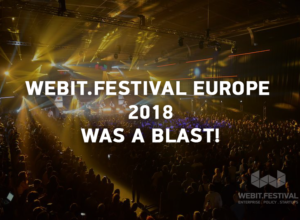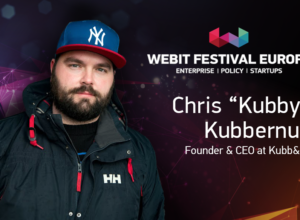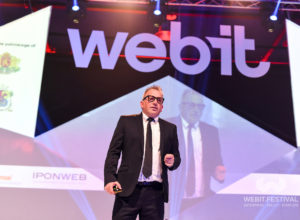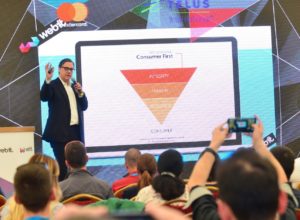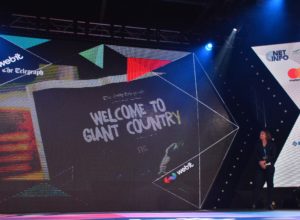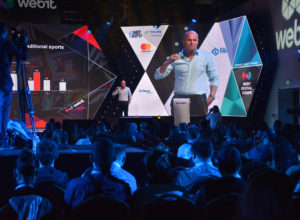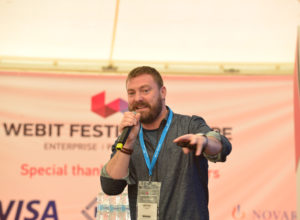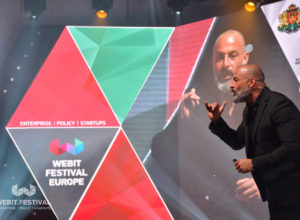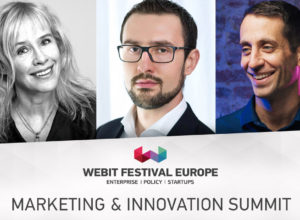Tag: marketing
… a picture tells a thousand stories! Webit.Festival Europe 2018 was...
10'000 people from 111 countries visited the Webit City
Don't miss the 2019 edition. Book your ticket now



Webit.Festival Europe 2018 in numbers:
- 10'000+ ATTENDEES (7200 Webit.Festival participants and 3000 Webit.X visitors) - 231 EXHIBITORS - 422 SPEAKERS - 110 HOURS of conference agenda & amazing content - 75% C-level (executive) ATTENDANCE - 111 VISITING COUNTRIES - 150 of THE BEST EUROPEAN STARTUPS AND SCALEUPS - 1000+ POLICY MAKERS The European Tech, Digital Economy and Policy event for 2018 was a huge success!
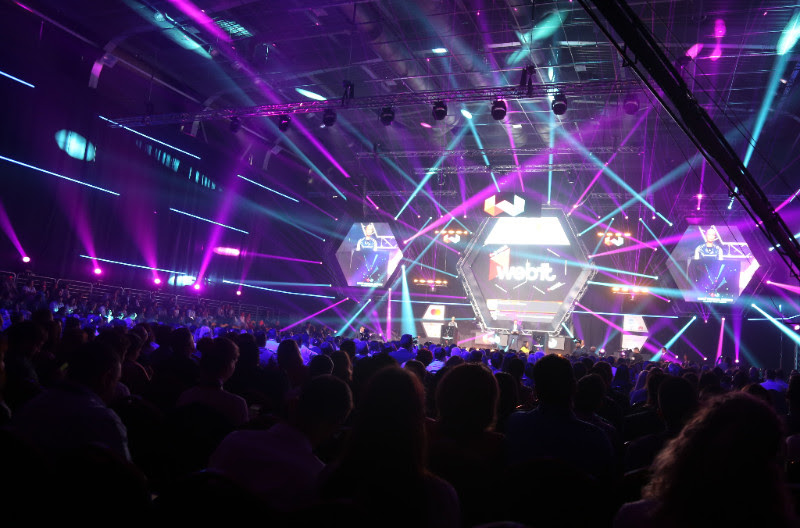 The Innovate! Summit and the Plenary Session, chaired by the European Commissioner for Digital Agenda and Society Mariya Gabriel, hosted some of the worlds digital, tech and policy leaders gathered to re:Invent Europe's Future.
The Innovate! Summit and the Plenary Session, chaired by the European Commissioner for Digital Agenda and Society Mariya Gabriel, hosted some of the worlds digital, tech and policy leaders gathered to re:Invent Europe's Future.

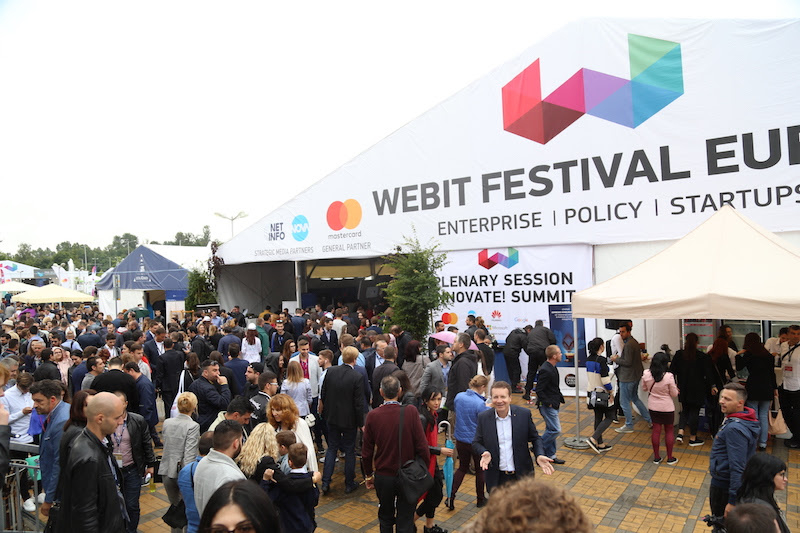
The Webit City has welcomed 10'000 global leaders and they all requested a residency :)
Here are just 5 quotes out of over 1000 interviews with the Webit City residents: "Unparalleled global business and policy networking at its highest level!" "The most amazing business event with a festival experience" "We basically do business here" "This is the only event where top EU policy makers and global business leaders exchange thoughts and share valuable discussions" “We got more investors visiting our expo booth compared to any other event we have been to”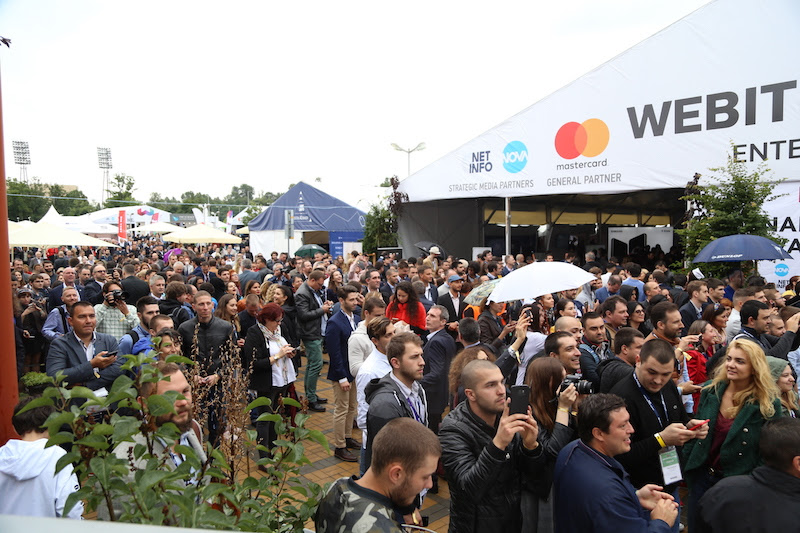

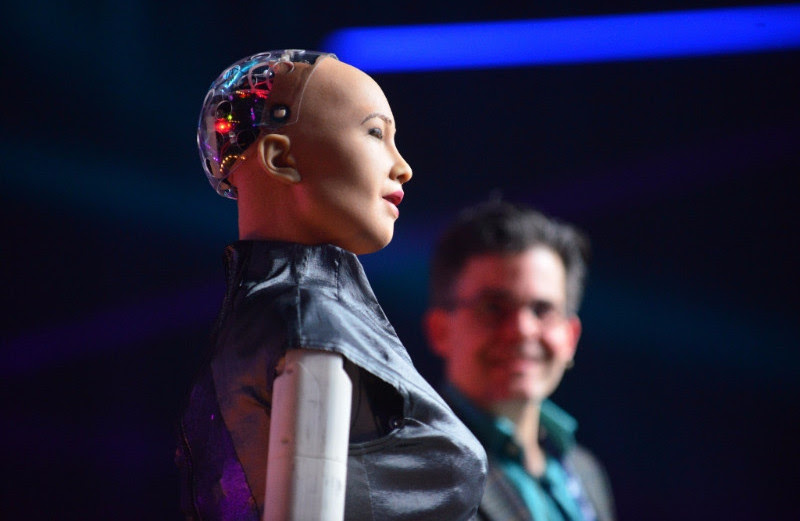
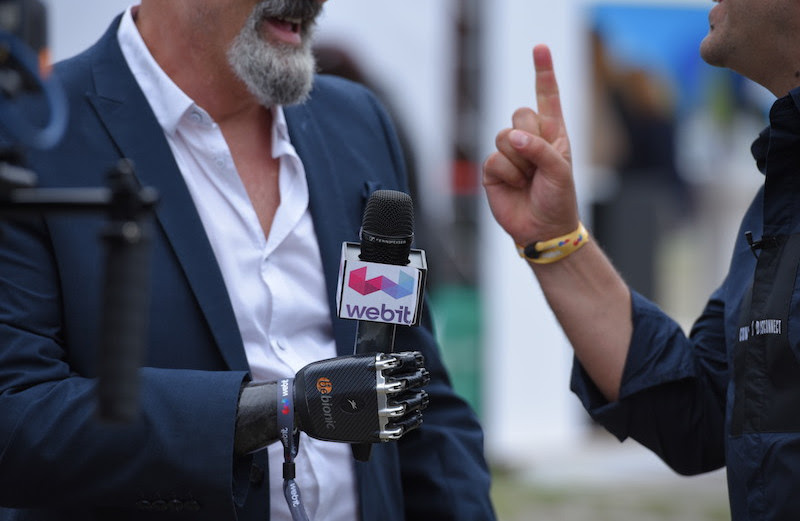
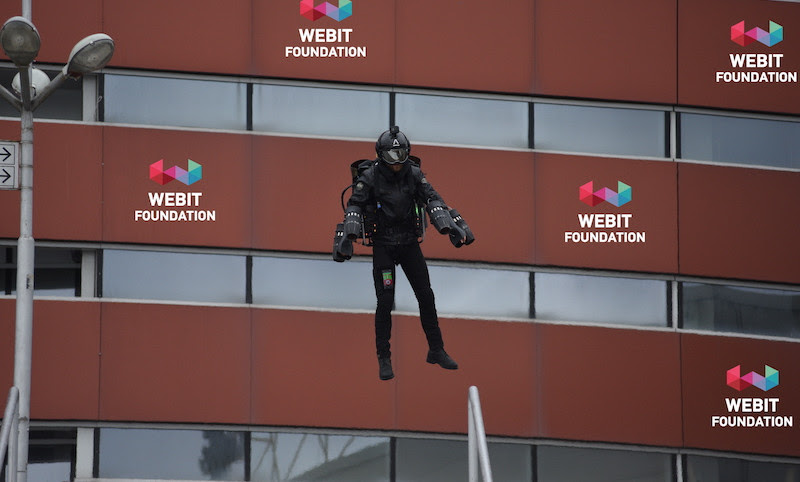

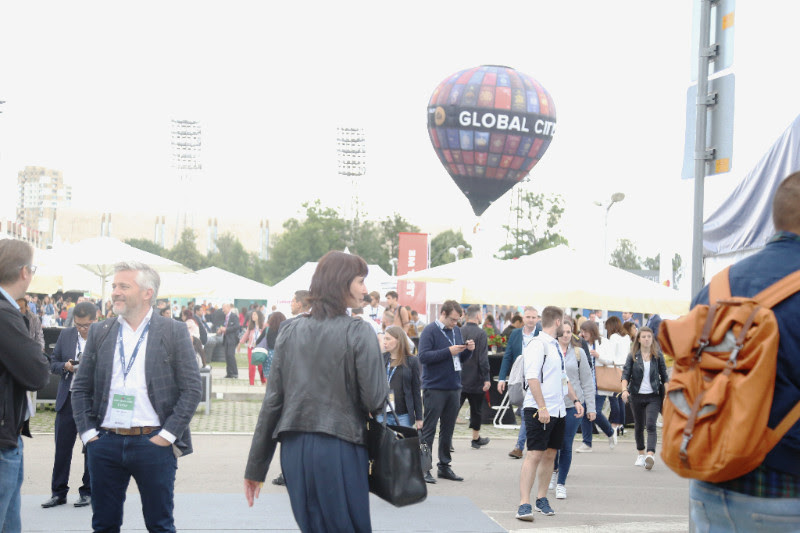
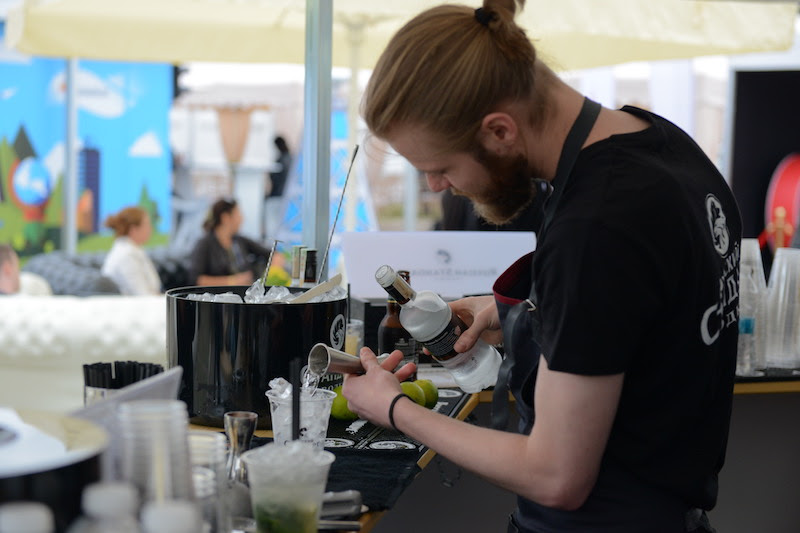
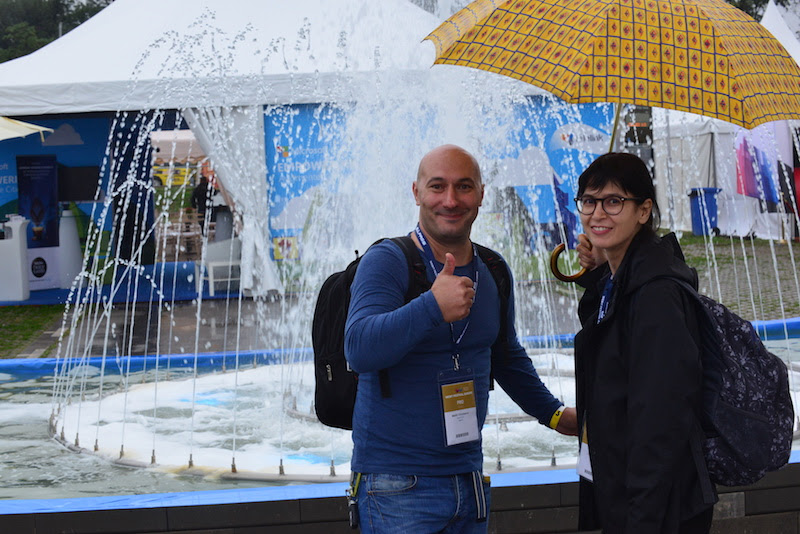
200+ exhibitors at over 20'000 sq.m Webit City expo & business networking area
From global tech, health, fintech, cybersecurity, mobility, blockchain, entertainment, AI, cloud leaders to smart jet fighters - they all were at Webit.Festival Europe 2018 represented by their global or EMEA HQs. Also hosted national pavilions.
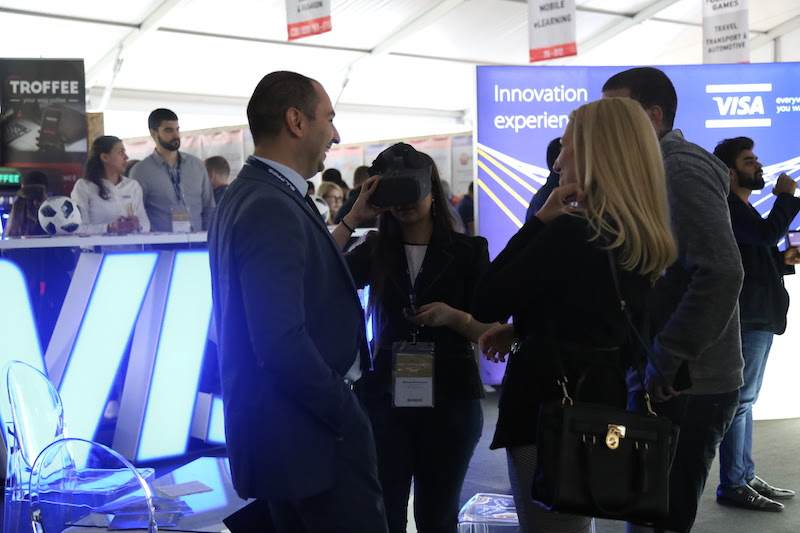
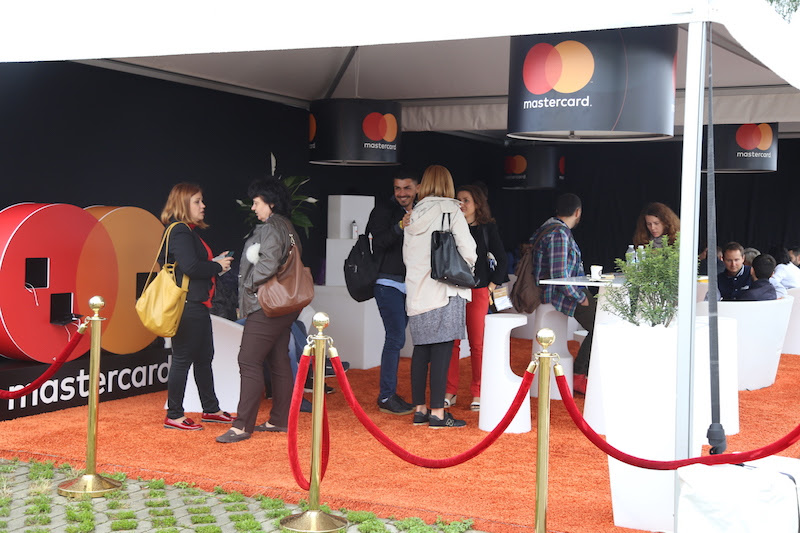

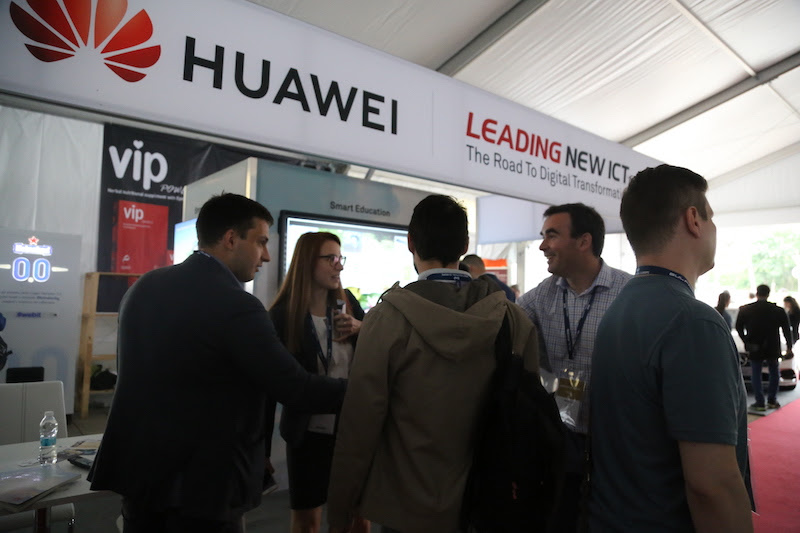
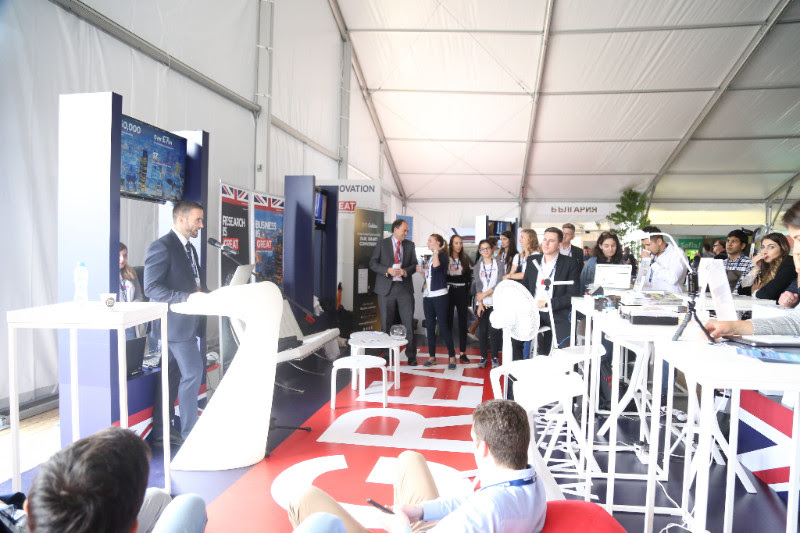
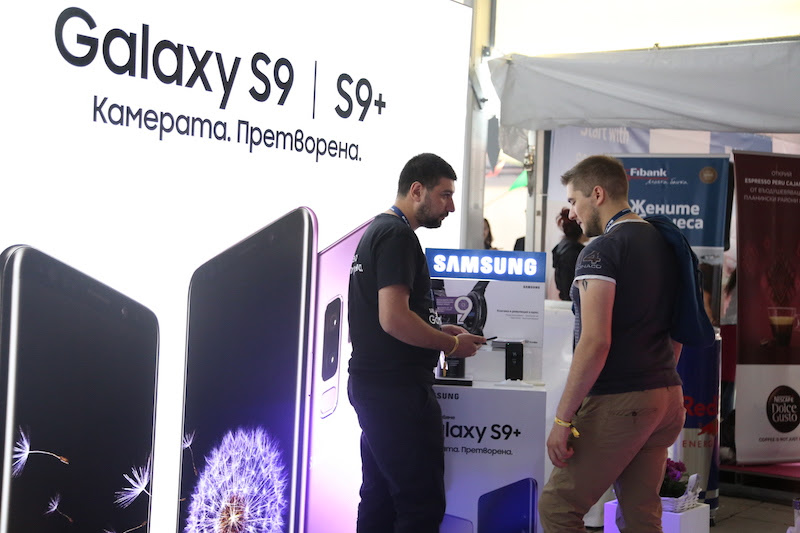

12 independent summits and over 50 meetups
421 speakers have created over 110 hours of conference agenda & amazing content within 12 independent summits.
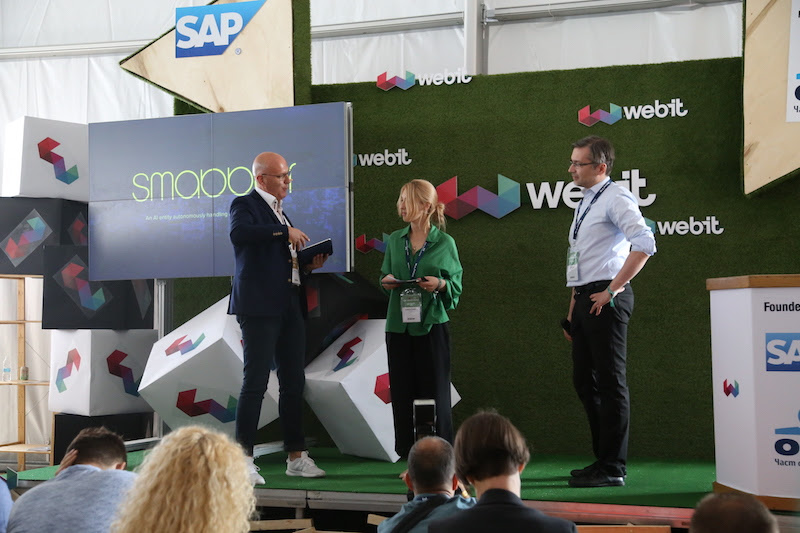


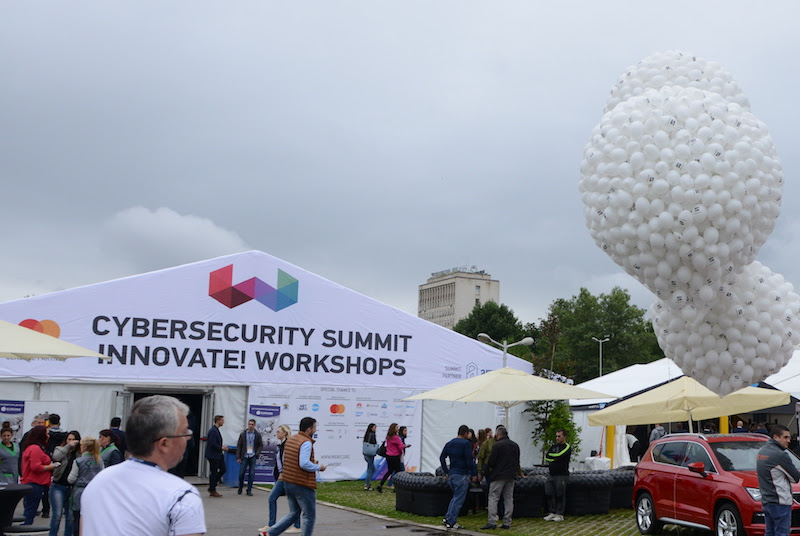
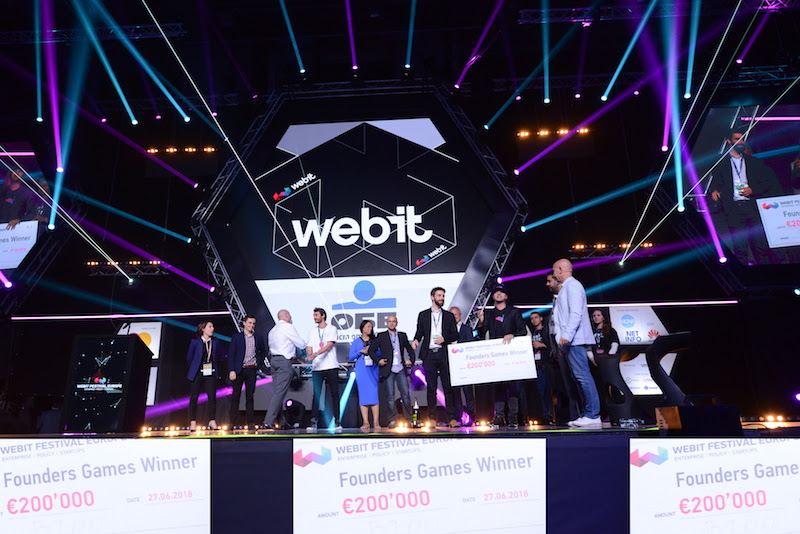 Founders Games winner of 200'000 EUR cheque is BIOO from Portugal.
Founders Games winner of 200'000 EUR cheque is BIOO from Portugal.
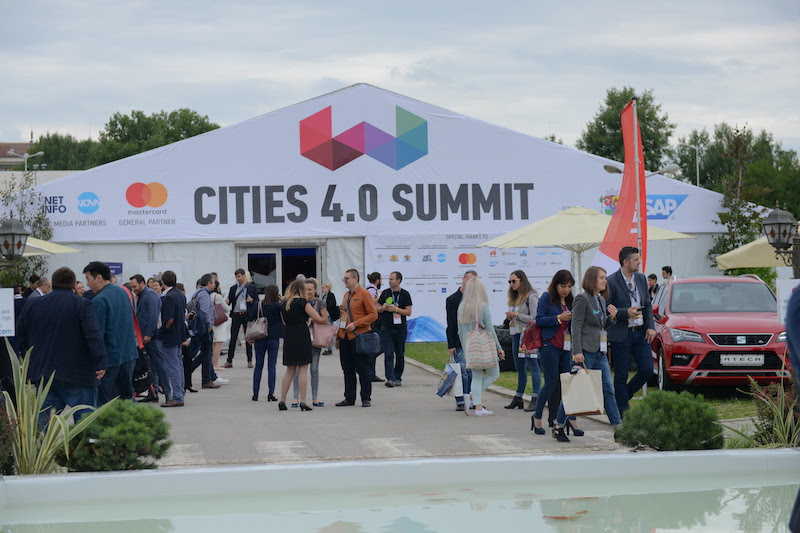
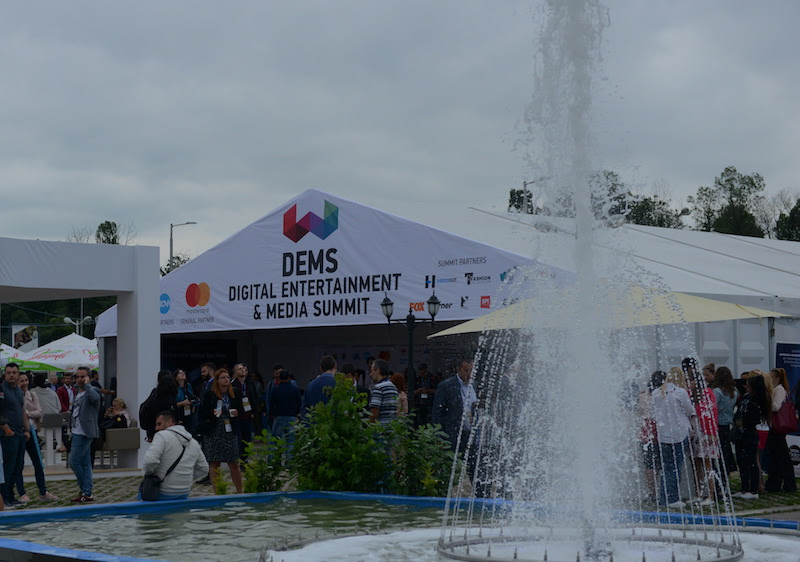
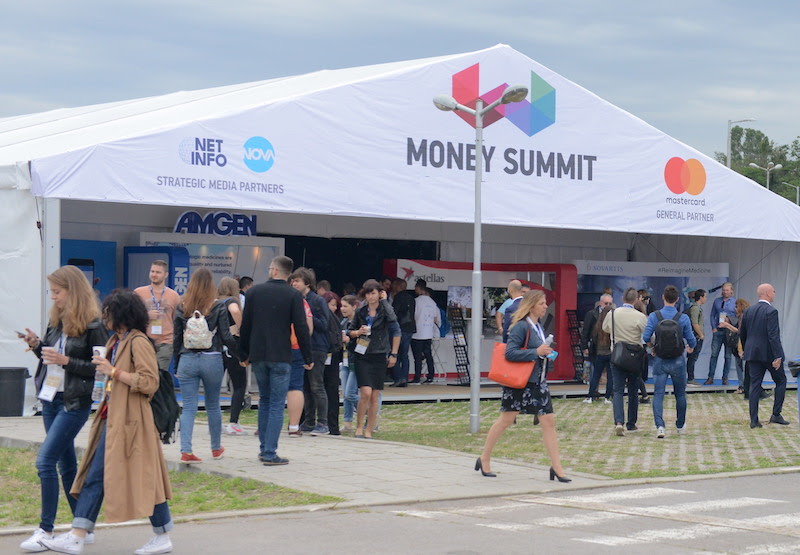
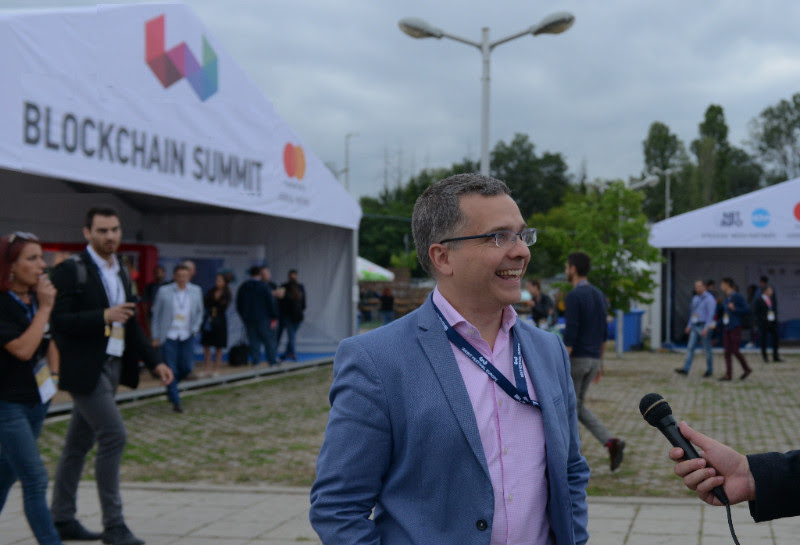 Cities 4.0 Summit, Digital Entertainment and Media Summit, Money Summit and Blockchain Summit
Cities 4.0 Summit, Digital Entertainment and Media Summit, Money Summit and Blockchain Summit
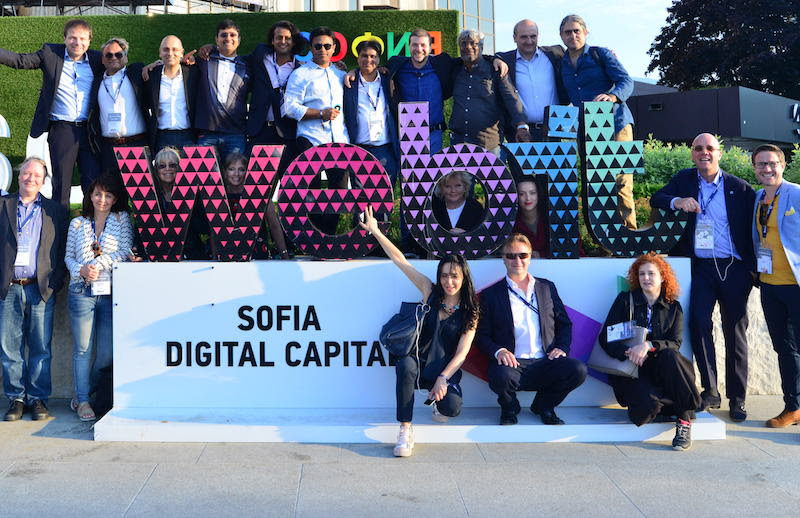

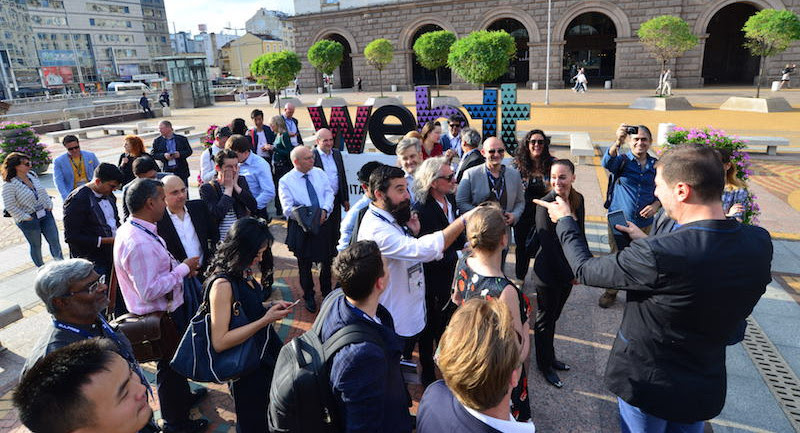
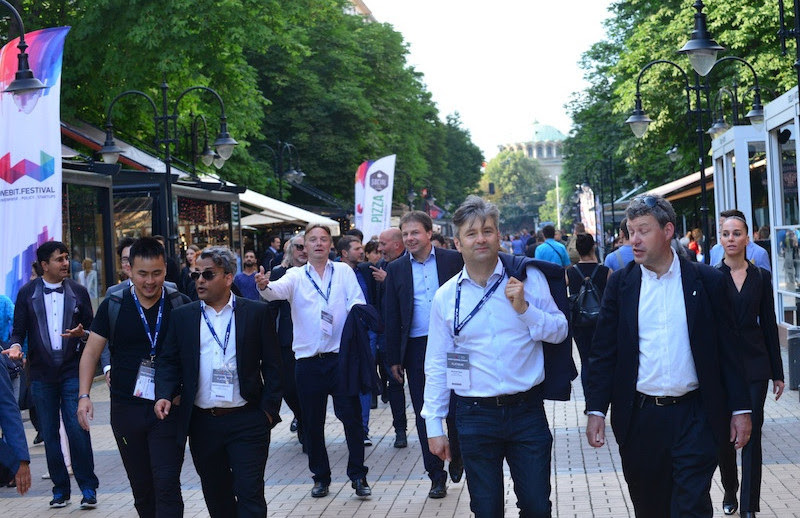
Webit Night Urban Summit

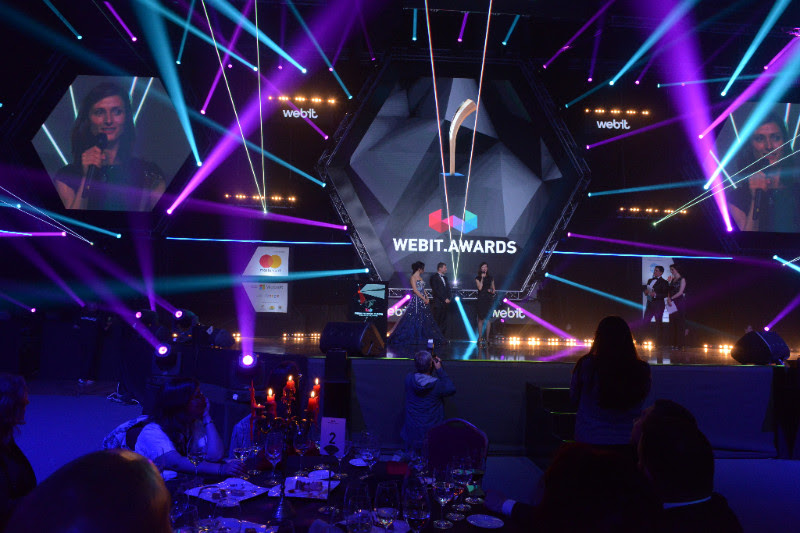
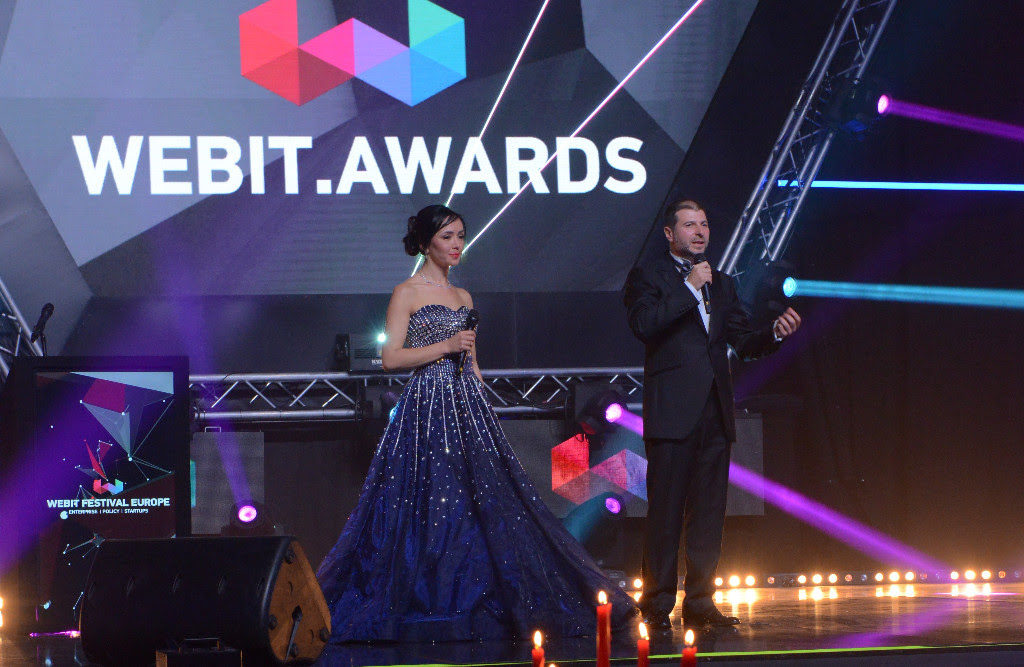
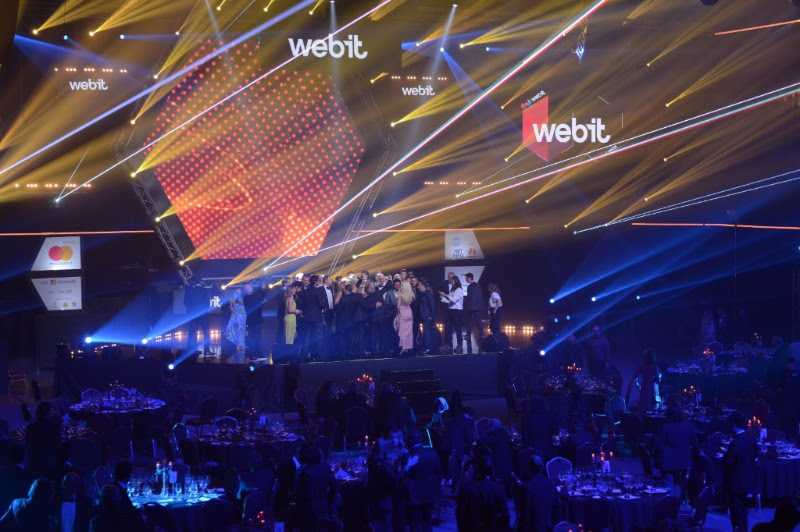 The Global Webit Awards Ceremony and The Chairman' Dinner by Dr. Russev
The Global Webit Awards Ceremony and The Chairman' Dinner by Dr. Russev
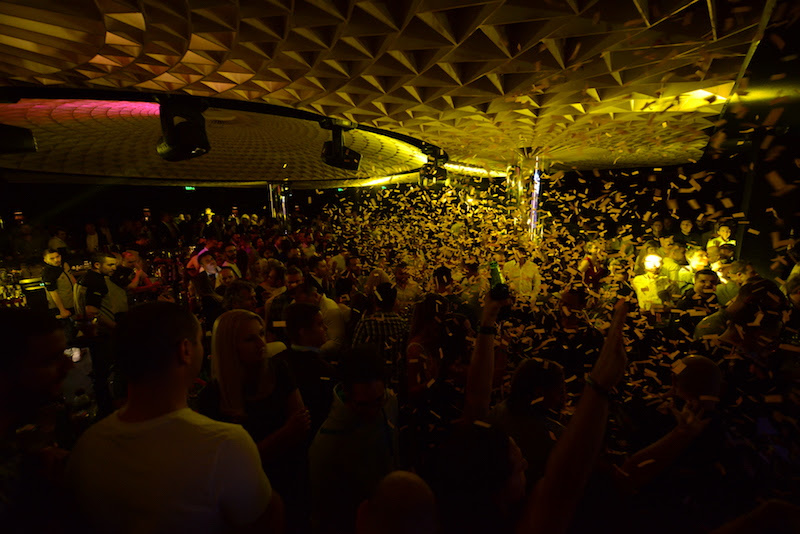


 The World Famous Webit Party, powered by Playboy, Fashion TV and Dorcel
The World Famous Webit Party, powered by Playboy, Fashion TV and Dorcel
 Webit.X - gathering and inspiring 3000 young future leaders
Webit.X - gathering and inspiring 3000 young future leaders
Missed the 2018 edition? Don’t miss the 2019! Book your ticket now at super earlybird rate
Webit.Festival Europe 2018 presents: Chris ‘Kubby’ Kubbernus
Here you can see a full list of the confirmed speakers at Webit.Festival, while here you can get all the information you need about the tickets for the event.
We need to go back to good, credible and authentic storytelling that brings value to the consumer
The notion of change is essential in the 21st century. We are developing way faster than we thought we would in 2008, for example. We now consider diseases treatable, in comparison with just 10 years back; companies have to adapt to change, but this would be impossible without certain people - people who envision the future, who encompass change and apply it. Chris Kubbernus, or Kubby, as his friends call him, named #1 Business Guru on Snapchat by Forbes, will be among the speakers at Webit.Innovate! Summit at the next Webit.Festival Europe 2018 on 26th - 27th June 2018. The one thing Chris wishes people to remember out of his talk would be that things change. According to him, companies today are not using technologies to their fullest potential - not seeing what’s happening in the marketplace and cannot react adequately.“ If you say to an organization: 'I think you should use Snapchat, or get on Instagram', they’d roll their eyes and say: 'Why would we do that?’ What they don’t realize is that these things quickly become mainstream, and that’s where they’re losing. They’re actually ignoring what’s going on in the marketplace, thinking that it’s just a trend and therefore not doing anything about it. Change happens and organizations have to recognize that and act on it before it gets too expensive.”
Chris is originally from Canada, but he likes to say that he was “imported in Denmark” by his wife. The difference in the two continents is obvious, in terms of marketing, but what exactly Chris finds drastically different is:Americans and Canadians are more trusting in their advertising. If you make a claim, they might take that as face value, whereas I think with Europeans, you have to have a more soft approach.
Living in Northern Europe, Scandinavians, he continues have a different approach to advertisement. People there are more likely to doubt the quality of the product whereas the Americans would trust the ad and will expect the same results.In social media, I find that Europeans are more conservative. They are less likely to share and like something or to engage with content. I think it takes a lot to move them to action, where in North America, in particular, it seems to be easier. People are more relaxed towards sharing on social media and voicing their opinions.
Chris was a speaker at the first Snapchat conference - we saw the rise of Snapchat, we all know those Snapchat glasses, don’t we. We are now also seeing the fall of Snapchat as a platform, it doesn't attract so much audience, in fact, its users are youngsters. It just somehow feels Snapchat will not last much longer, although, Chris says, you have to wonder why the biggest social networks in the world are mimicking what Snapchat did.“ I think, in a way, Snapchat is being replaced by Instagram. Instagram is doing a very good job of copying and making their own new features. But Snapchat is a playground, still much more than Instagram. And Facebook sees that they are losing the younger generation, so I think that if Snapchat can continue being the anti-Facebook, they will stay relevant. They just need to retain that identity. “
Besides Facebook, another huge platform is so very widely used - Instagram. The main differences in the two platforms, Chris explains like this:On Facebook, content is consumed slower and with more thought. People are less likely to like on Facebook, whereas on Instagram, there’s less exposure and more anonymity. Instagram is a little hedonistic in some ways, while Facebook is your core of friends and family, where you have to be more ‘considerate'.
Unlike some other social platforms, like Snapchat, for example, Facebook will be present in our lives for many more years. It is a place where you can document your entire life and in terms of ‘replacing’, Instagram will not replace Facebook as a social media platform. At the end of the day, “both platforms are playgrounds for displaying different parts of our personalities”. My social media predictions for 2018 is a continuation and examination of influencer-marketing and how much we let social media influence us, says Kubby. The psychological effect of social media will continue to determine the way we communicate and perceive information and the trend of what is real and what is fake will determine the consumer’s behaviour.“ Right now, digital marketing is losing consumers because of disinterest and mistrust in fake influencer-marketing. We need to go back to good, credible and authentic storytelling that brings value to the consumer. “
Ethics in data usage
You must have heard about data
Just open up any news website, newspaper and the figures are there. It’s the buzzword of our time - everybody is talking about data, flow of data, security, protection, etc. As is technology. You use technology everywhere - all around you. Уou use it every single day. Аnd that’s exactly where the real danger lies. The Estonian Prime Minister, Kersti Kaljulaid, is saying that society is changing because of the washing machine, not because it landed on the Moon, quoted by local media seems more inline with what’s happening today that any other jibber jabber. That’s to say, simple, everyday technology really changed the way people live, not high end software that very few people possess.Now that you are scrolling facebook..
..how do you know that one of your friends is not exactly your friend? Or perhaps somewhere out there is holding you personal data for God-knows-what? Well you can’t. Internet and the websites offer anonymity to a huge extend. At least to somebody who knows how to work with data. For the artificial intelligence there are no hidden spots. Jason Jercinovic, the Global Head of Marketing innovation of Havas, tackled the ethical issues of companies using data, personal data, for various purposes @Webit.Festival Europe 2017. Machines today know all about you - the emojis you use, the personal thoughts you share and anybody with access to that can easily use this information. Why is it OK for a car company to know its customers, their behavior and send newsletters with the innovations they would be interested in? But it’s not OK when terrorist groups research and target young men and women to enter the military? Companies are still struggling to define what sensitive data is and how to protect it. The lack of clear regulations doesn’t help in fighting the problem. The first steps towards some kind of decision have been taken. In January 2012, the European Commission proposed a comprehensive reform of data protection rules in the EU. The directive will effectively enter into force from May 2018.This and more will be discussed @Webit.Festival Europe 2018
Webit is the flagship event of a European digital week part of which will be the Digital Assembly, the annual high level gathering of European executives. Topics like Data encryption, privacy & security as well as data flow and its ethical implications are part of the Innovation Summit. They will be covered by experts and legislators. If you want to keep up with the latest trends in the world of digital economy and technology, then Webit.Festival is the right place for you. Visit our website and book 2 in 1 of our Super Earlybird tickets for Webit.Festival Europe 2018. You can watch Jason Jercinovic’s keynote here: [embed]https://www.youtube.com/watch?v=vlDC9VSxUCU[/embed]The Millennials expect brands to know them not as a segment,...
Few years ago the Executive Chairman of Google Eric Schmidt predicted that soon it will be very hard for people to watch or consume something that is not in some sense been tailored especially for them. And as the Millennial generation becomes a bigger and bigger part of the consumer population marketers realize that this is quickly becoming reality.
The challenge before the marketing experts worldwide is to catch up with this giant trend and to find new ways to personalize their products and services and make them relevant for the Generation Y.
And during Webit.Festival Europe the Chief Marketing Officer of Selligent Nick Worth shared his vision about the evolution of his profession in the Digital age and the changing consumer behavior.
Nick joined the Selligent Executive Advisory Board in 2013, and became the company’s first CMO a year later. Selligent was recently recognized by Venture Beat as the world's fastest growing marketing automation company. Today, it offers the world’s first relationship marketing platform that can deliver on the promise of consumer-first marketing with contextually
The main hypothesis behind this success is that people live in moments, and the moment is the key to marketing, because that is when somebody has to make a big decision.
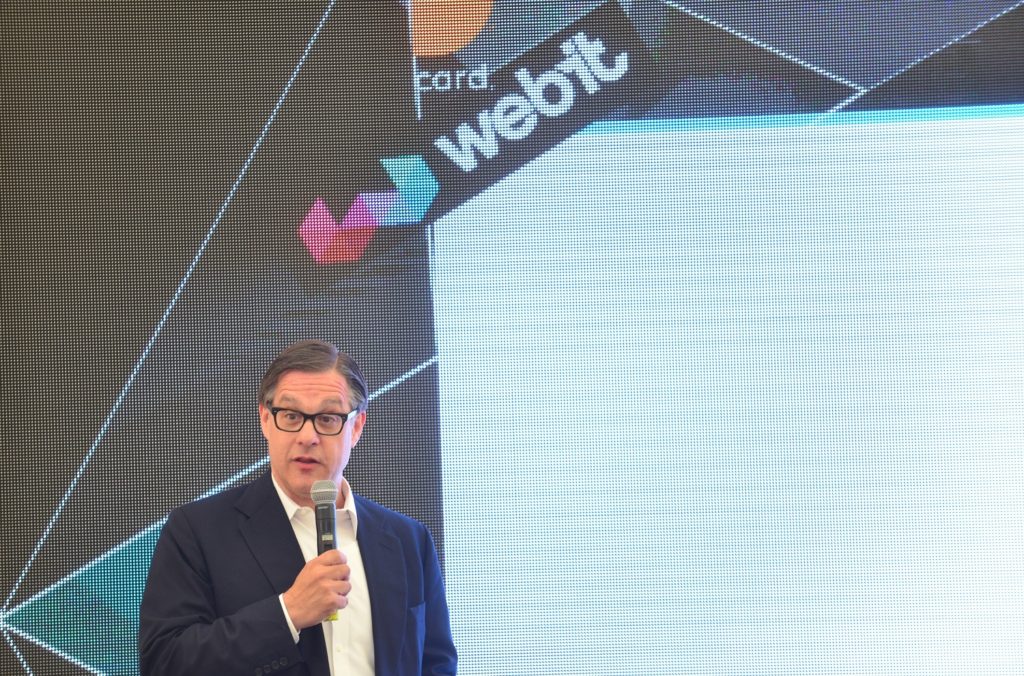 The Chief Marketing Officer of Selligent Nick Worth [/caption]
The person that thinks that cereal is inconvenient is called the entitled consumer. He believes that he is inherently deserving of privileges of special treatment. 90% of us expect real-time customer service. 78% expect automatic payments and checkouts. 79% expect same-day delivery. 53% expect retailers to learn their taste and make suggestions. 48% even expect that there will be a service that ships products before they order them. This is an actual thing that is called Anticipatory commerce.
All businesses today have to market in a world where people think that they are going to order products with their brains and the marketers will just know where to send them. And this is a tough world to live in.
The Chief Marketing Officer of Selligent Nick Worth [/caption]
The person that thinks that cereal is inconvenient is called the entitled consumer. He believes that he is inherently deserving of privileges of special treatment. 90% of us expect real-time customer service. 78% expect automatic payments and checkouts. 79% expect same-day delivery. 53% expect retailers to learn their taste and make suggestions. 48% even expect that there will be a service that ships products before they order them. This is an actual thing that is called Anticipatory commerce.
All businesses today have to market in a world where people think that they are going to order products with their brains and the marketers will just know where to send them. And this is a tough world to live in.
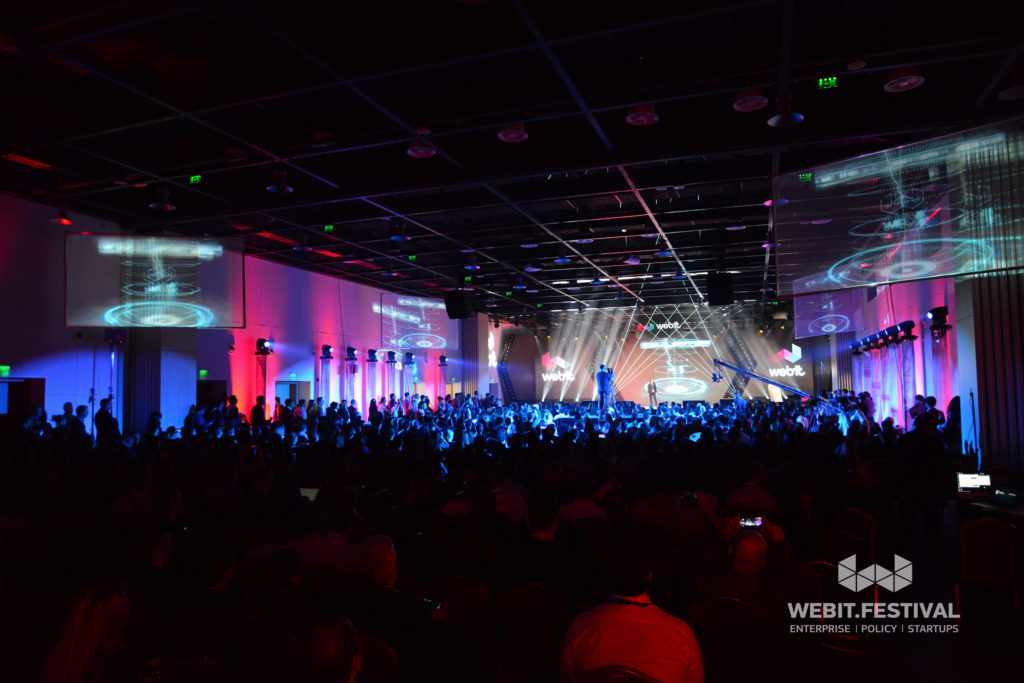 Another interesting example is ING. Like all retail banks their biggest challenge is getting new customers because new customers in banks are young people. You want to get them in university or first job and then build a relationship that will last for years.
Rather than reaching out to young people in Belgium on the basis of how great their banking services are, they try to think about what young people do in Europe during the summer. They go to music festivals, because they are fun. But music festivals have problems. There is no parking, there are no toilets, there is no place to charge your phone. If you are caring a lot of valuable stuff there is no place to put them. If you want to share your experience with your friends it is hard to do it because there is no signal.
So ING built its summer festival campaign using technology to provide young people with all these things. This gives ING the opportunity to gather a lot of information about these potential new customers. Meanwhile young people tell to themselves that there is a bank that understands what they want, even if it has nothing to do with banking.
You may watch Nick Worth’s full lecture here:
If you want to keep up with the latest trend in the world of digital economy and technology, then Webit.Festival is the right place for you. Visit our website and book 2 of our Super Earlybird tickets for Webit.Festival Europe 2018 for just €100.
Feel the Webit vibe with some of the best photos from this year’s event!
[easingslider id="4954"]
Another interesting example is ING. Like all retail banks their biggest challenge is getting new customers because new customers in banks are young people. You want to get them in university or first job and then build a relationship that will last for years.
Rather than reaching out to young people in Belgium on the basis of how great their banking services are, they try to think about what young people do in Europe during the summer. They go to music festivals, because they are fun. But music festivals have problems. There is no parking, there are no toilets, there is no place to charge your phone. If you are caring a lot of valuable stuff there is no place to put them. If you want to share your experience with your friends it is hard to do it because there is no signal.
So ING built its summer festival campaign using technology to provide young people with all these things. This gives ING the opportunity to gather a lot of information about these potential new customers. Meanwhile young people tell to themselves that there is a bank that understands what they want, even if it has nothing to do with banking.
You may watch Nick Worth’s full lecture here:
If you want to keep up with the latest trend in the world of digital economy and technology, then Webit.Festival is the right place for you. Visit our website and book 2 of our Super Earlybird tickets for Webit.Festival Europe 2018 for just €100.
Feel the Webit vibe with some of the best photos from this year’s event!
[easingslider id="4954"]
“We think about that in terms of something called consumer-first marketing. Traditionally marketers start with a program and channel. We think that you need to turn that upside down and start with the need of the person”, Worth explained.Consumer-first marketing inverts the traditional approach to marketing. It focuses on consumers to identify opportunities for filling the unmet need, entertaining or solving a pressing problem. It all starts with the need, treating it with integrity and listening to what consumers are telling about their requirements. As a marketer in the Digital age, you have to first be empathetic, and then deliver something that is relevant to the moment. As an example for the ever changing behavior of the consumer, Worth talked about the development of cereal breakfast market in the US during the last couple of decades. He remembered that when he was a kid his family always gathered in the morning to eat cereal as a time for bonding together. The reason the used this kind of food because it was convenient and fast to prepare. Later in college he ate cereal, not only for the convenience, but because of the low price. In the same time statistics show that cereal sales in the US are declining. The reason people don’t want to eat cereal any more is that it need a bowl and spoon that you have to clean. What happened is that this product went for being super popular because of its convenience to being unpopular for the exact opposite reason. What is taking off in the US is the sales of whole food bars. You just have to unwrap it and eat it. The point is that while the cereal stayed exactly the same during the years, the people have changed. And their expectations about what seems convenient changed too. [caption id="attachment_5037" align="aligncenter" width="640"]
 The Chief Marketing Officer of Selligent Nick Worth [/caption]
The person that thinks that cereal is inconvenient is called the entitled consumer. He believes that he is inherently deserving of privileges of special treatment. 90% of us expect real-time customer service. 78% expect automatic payments and checkouts. 79% expect same-day delivery. 53% expect retailers to learn their taste and make suggestions. 48% even expect that there will be a service that ships products before they order them. This is an actual thing that is called Anticipatory commerce.
All businesses today have to market in a world where people think that they are going to order products with their brains and the marketers will just know where to send them. And this is a tough world to live in.
The Chief Marketing Officer of Selligent Nick Worth [/caption]
The person that thinks that cereal is inconvenient is called the entitled consumer. He believes that he is inherently deserving of privileges of special treatment. 90% of us expect real-time customer service. 78% expect automatic payments and checkouts. 79% expect same-day delivery. 53% expect retailers to learn their taste and make suggestions. 48% even expect that there will be a service that ships products before they order them. This is an actual thing that is called Anticipatory commerce.
All businesses today have to market in a world where people think that they are going to order products with their brains and the marketers will just know where to send them. And this is a tough world to live in.
“The Millennials expect brands to know them not as a segment but as an specific individuals. Their grandparents are worried about privacy online. What they worry about is relevance. They expect brands to give them individual experience. This is the first generation that don’t want to be thought about as a generation, but as individuals”, Worth said.An obvious example for this is the ever growing $200 billion fast food market in the US. Statistics show that Chipotle is taking over the McDonald’s because of the personalized products they offer. Their clients can pick every ingredient in the Mexican food they order. The entitled consumers want convenience, value and relevance. The average number of daily marketing messages per consumer have gone from 500 in 1920 to over 10 000 in 2016. We have become a world where people are giving brands about 8 seconds of attention, while the average level of attention span of a goldfish is around 9-10 seconds. One of the main problems is that Millennials are not multitasking. Instead, they are selectively paying attention to one thing tuning out others and then switching. That means that if you want to send a teenager a message you have got to tune out other things.
 Another interesting example is ING. Like all retail banks their biggest challenge is getting new customers because new customers in banks are young people. You want to get them in university or first job and then build a relationship that will last for years.
Rather than reaching out to young people in Belgium on the basis of how great their banking services are, they try to think about what young people do in Europe during the summer. They go to music festivals, because they are fun. But music festivals have problems. There is no parking, there are no toilets, there is no place to charge your phone. If you are caring a lot of valuable stuff there is no place to put them. If you want to share your experience with your friends it is hard to do it because there is no signal.
So ING built its summer festival campaign using technology to provide young people with all these things. This gives ING the opportunity to gather a lot of information about these potential new customers. Meanwhile young people tell to themselves that there is a bank that understands what they want, even if it has nothing to do with banking.
You may watch Nick Worth’s full lecture here:
If you want to keep up with the latest trend in the world of digital economy and technology, then Webit.Festival is the right place for you. Visit our website and book 2 of our Super Earlybird tickets for Webit.Festival Europe 2018 for just €100.
Feel the Webit vibe with some of the best photos from this year’s event!
[easingslider id="4954"]
Another interesting example is ING. Like all retail banks their biggest challenge is getting new customers because new customers in banks are young people. You want to get them in university or first job and then build a relationship that will last for years.
Rather than reaching out to young people in Belgium on the basis of how great their banking services are, they try to think about what young people do in Europe during the summer. They go to music festivals, because they are fun. But music festivals have problems. There is no parking, there are no toilets, there is no place to charge your phone. If you are caring a lot of valuable stuff there is no place to put them. If you want to share your experience with your friends it is hard to do it because there is no signal.
So ING built its summer festival campaign using technology to provide young people with all these things. This gives ING the opportunity to gather a lot of information about these potential new customers. Meanwhile young people tell to themselves that there is a bank that understands what they want, even if it has nothing to do with banking.
You may watch Nick Worth’s full lecture here:
If you want to keep up with the latest trend in the world of digital economy and technology, then Webit.Festival is the right place for you. Visit our website and book 2 of our Super Earlybird tickets for Webit.Festival Europe 2018 for just €100.
Feel the Webit vibe with some of the best photos from this year’s event!
[easingslider id="4954"]
Exclusive content is what drives the audience in the Digital age
In the digital world we live in we get information about what is happening around the globe literally on every second. In an information environment like that the task of running a newspaper may seem almost impossible, especially if you want to reach the young audiences and Мillennials in general.
But there are more than several examples around the world of successful symbiosis between the old school analytical journalism and the fast lane news reporting using the tools that digital technology gives us.
During this year’s Webit.Festival Europe our guest had the chance to listen to the Global Entertainment Director of Telegraph Media Group talking about the customer journey through creative content and the right balance between engagement and scale in the media industry nowadays.
Parkinson has over 20 years experience in all aspects of Marketing and Distribution in the UK and International film distribution industry. Starting her career in the marketing department of the legendary Palace Pictures and then going on to roles as Promotions Manager at United International Pictures followed by 11 years as Head of Film across the Emap portfolio. Denise's most recent roles have included Director of International Marketing for Europe, Middle East and Africa for Disney, ABC and ESPN Television and Global Entertainment Director for Yahoo!
Recently she was asked by The Telegraph to develop the film category of their news. Now she works closer with the movie studios, while her work is increasing the revenue and contend on all communication channels of the 200-years old newspaper.
Expanding a media institution like The Telegraph to reach the digital audience is definitely not an easy task. The newspaper is a classic broadsheet with conservative analysis and old school media approach. But now its movie section is reaching the mass public, making the studios happy and getting a big part of their revenue through promotion campaigns.
That level of success required a complete reform in the way the media is producing content that work seamlessly with its digital and print products. And while the newspaper may look like a conservative broadsheet, the app is bright,visual and simple to use and give us the option to choose only the content we want to see and get notifications about the breaking news in the respective categories.
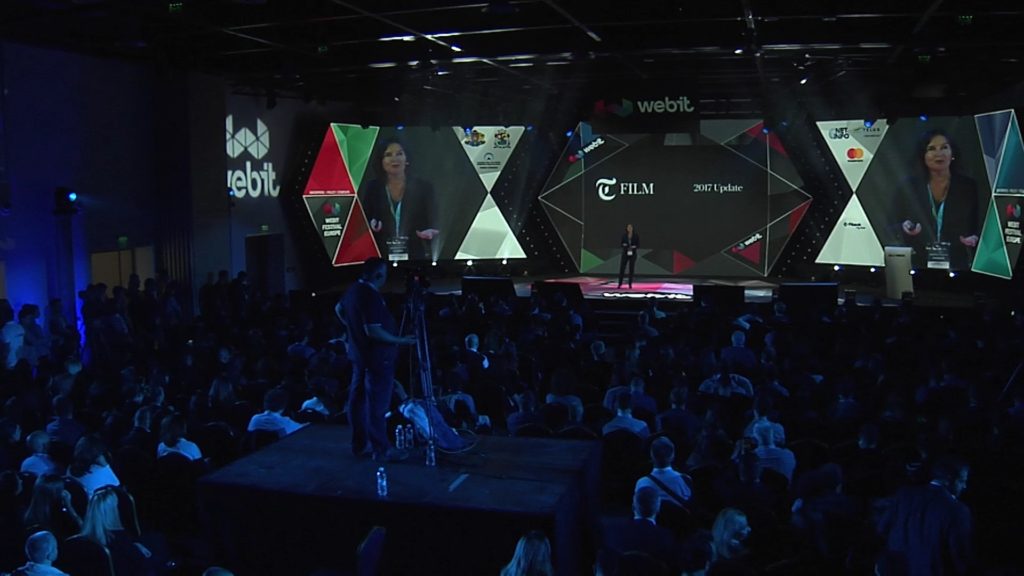 The Global Entertainment Director at Telegraph Media Group Denise Parkinson[/caption]
For the last several years The Telegraph established itself as the go to media when searching information about upcoming movies with its exclusive content and innovative Omni-channel approach.
The Global Entertainment Director at Telegraph Media Group Denise Parkinson[/caption]
For the last several years The Telegraph established itself as the go to media when searching information about upcoming movies with its exclusive content and innovative Omni-channel approach.
“This segment is about the consumer journey. It’s so hard to get cut through now and get stand through. It’s so hard to get people to go to the movie, when there is Netflix and Amazon and so many enticements to just stay at home and watch on your tablet”, Parkinson said.Today, The Telegraph is not just a quality newspaper for the British public, but a 360 degrees publisher with global reach through online website, mobile app and print edition. It has 22.5 monthly users. 6.7 million of them are reading news on a desktop computer, 4.4 million in print and 16.6 on various devices, so the mobile is really the growth area for the future. And while the media is publishing some premium content as part of its monetization strategy, 80% of the content is free and easy to access for the user. If you want in-depth analysis from any of The Telegraph’s columnists on sport, politics, entertainment, lifestyle etc., you need to pay a small monthly fee to access the premium sections of the newspaper online editions. With that, you also get subscribers benefits and unique opportunities, including even red carpet experiences. [caption id="attachment_5028" align="aligncenter" width="640"]
 The Global Entertainment Director at Telegraph Media Group Denise Parkinson[/caption]
For the last several years The Telegraph established itself as the go to media when searching information about upcoming movies with its exclusive content and innovative Omni-channel approach.
The Global Entertainment Director at Telegraph Media Group Denise Parkinson[/caption]
For the last several years The Telegraph established itself as the go to media when searching information about upcoming movies with its exclusive content and innovative Omni-channel approach.
“We are number 1 for cinema goers. That means that we have more cinema goers engaging with our brands than our competition. This is really important message to send to the film studios and to work with them on their promotions. We have a young audience. So for an old newspaper that has got a conservative tone and voice it’s really fantastic to know that we index much higher with youth audience more than you would expect. We actually have more users than Buzzfeed”, Parkinson said.As an example of the 360 degrees approach of the media she pointed out the exclusive interview with the Hollywood star Adam Driver. The Telegraph ran an online competition and gave its audience a chance to come to the interview, watch the film “Paterson” before its official premiere and meet the actor in person. Right now Adam Driver is really huge star because of his role as Kylo Ren in the reboot of the Star Wars saga and this kind of award is very interesting for the readers. The interview was streamed live for the people, who couldn’t win the tickets. According to Parkinson this is a complete integrated promotion that fits the distributor’s every need. Because they get a lot of pre-promotion, when the media was promoting the competition, that happened about 2 weeks before the film was released. And just a few days before the premiere the live interview happened. That interview was then edited and uploaded on the site to sustain the interest couple of weeks after the movie was released.
“It’s a win win and we get exclusive content which means if you are Adam Driver fan we are the only place that you can come to. So the most important thing is getting exclusives, because exclusives are what drives audience”, she explained.Going back to the old school approach, the newspaper was able to integrate the legacy of the brand and produce some engaging advertorials, because in the media business everything is about the engagement and keeping the audience on the page as long as possible. You may watch the full lecture of Denise Parkinson here: If you want to keep up with the latest trend in the world of digital economy and technology, then Webit.Festival is the right place for you. Visit our website and book 2 of our Super Earlybird tickets for Webit.Festival Europe 2018 for just €100. Feel the Webit vibe with some of the best photos from this year’s event! [easingslider id="4954"]
Esports and Gaming are defining entertainment for millennials
We all know at least one nerdy guy, who never leaves his parents place and is always playing video games with his friends online. Well guess what? He now has the chance to build his own Cinderella story and become a real rockstar without the need to give up on his hobby. In fact, he can even make a professional career out of it and compete for millions dollar prize at tournaments all over the world.
This is not a story taken from a Hollywood movie that is trying to make the nerds worldwide feel better about themselves. It is the reality of Esports - a trend that is driving the entertainment trends for hundreds of millions millennials around the globe.
At this year’s Webit.Festival Europe our guests had the chance to hear the CEO of MTGx Digital Ventures Arnd Benninghoff explaining the world of competitive Gaming and the amazing opportunities it creates for the entertainment market.
During his presentation he shared his views about the future of this new industry and compared it to the performance of other traditional sports during the last several years.
As an example of the impact of Esports today he showed the audience a YouTube video of the gamer “jackspeticeye” playing Rocketball - a game that is soon going to become a part of the official tournaments. He is playing games, commenting on this and gathering millions of views. The player now has over 15 million subscribers, while the video itself is viewed more than 4.2 million times.
And this is not at all a single case. In fact digital influencers all around the world gather millions of followers with new video format. Now they don’t need production companies, because they are able to produce videos from their living rooms.
Recent polls show that millennial stars come from the digital universe. In fact if you look at the top 10 influencers for the Generation Y you will find only two people from showbusiness. All the others are online stars, like the biggest youtuber PewDiePie, who now has over 55 million subscribers.
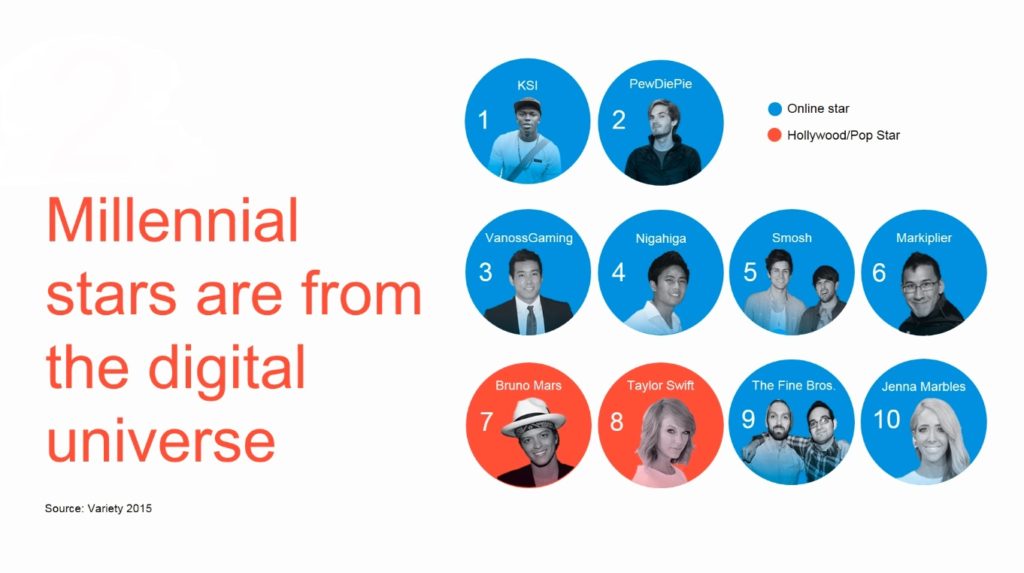
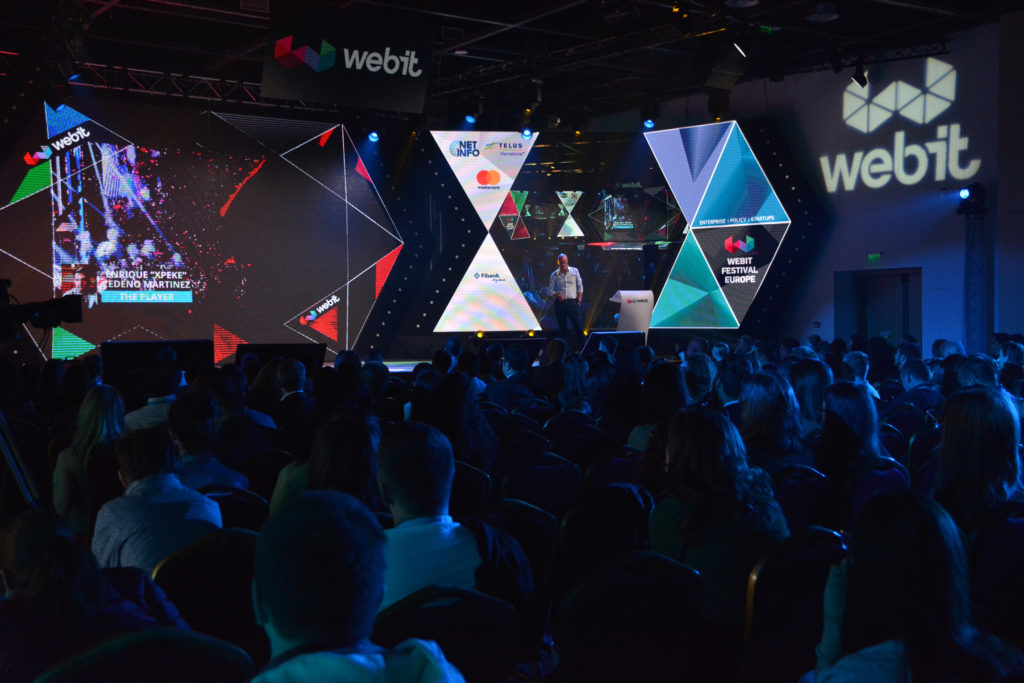 The CEO of MTGx Digital Ventures Arnd Benninghoff.[/caption]
There are now more than 2.2 billion gamers, while if you look at traditional sport there are about 2 billion sport fans. We have more than 20 relevant Esports games and over 200 professional Esports teams. These players do nothing but playing games. They live with their teammates in gaming houses, travel the world and competing for millions of prize money. And there are more than 324 million fans watching them on online platforms and already on TV.
Esports opens doors to millennials that are usually hard to reach via traditional media. They have credit cards next to them and you can easily convert them into buyers. That is the reason why the big brands now enter Esports. Corporations like Coca-Cola, Red Bull, Intel, Mastercard and Geico are investing in their own teams. Even traditional football clubs like Wolfsburg, PSG and Schalke 04 are planning Esports teams.
The CEO of MTGx Digital Ventures Arnd Benninghoff.[/caption]
There are now more than 2.2 billion gamers, while if you look at traditional sport there are about 2 billion sport fans. We have more than 20 relevant Esports games and over 200 professional Esports teams. These players do nothing but playing games. They live with their teammates in gaming houses, travel the world and competing for millions of prize money. And there are more than 324 million fans watching them on online platforms and already on TV.
Esports opens doors to millennials that are usually hard to reach via traditional media. They have credit cards next to them and you can easily convert them into buyers. That is the reason why the big brands now enter Esports. Corporations like Coca-Cola, Red Bull, Intel, Mastercard and Geico are investing in their own teams. Even traditional football clubs like Wolfsburg, PSG and Schalke 04 are planning Esports teams.

“More than 40% of the millennials in the US between 18 and 24 years of age are leaving the traditional TV and they are not coming back. What defines their life and their pop culture is games. Games are relevant storytelling. They spend an average of 107 minutes per day playing video games compared to 139 minutes watching live TV”, Benninghoff said.The new sport for this generation is called Esports. This is competitive Gaming that is able to fill big stadiums and now gives gamers the opportunity to play for millions prize money. The statistics of the streaming platforms can easily show us that it is getting even bigger than the traditional sports. Online Gaming means that you start your journey by downloading a game. You start playing the game, then you become a hero and spend hours playing the game. And guess what you do? You want to share your videos on Twitch. You are going to broadcast yourself. Then if you are really good, you will start playing in a team and become a pro gamer, which will be a new career for millions of youngsters. For the broadcasters Gaming is so interesting because it is often free to play. This means that you can just download the game you like and begin a story that can took hundreds of hours of playing time to complete. And now more than 30% of the daily mobile usage is Gaming. The average millennial is spending at least 1 hour per day into this. Benninghoff predicted that soon Esports are going to be added in the Olympic sports calendar. It only depends on the age of the International Olympic Committee members and when will they accept that this is already bigger than most of the other sports. According to ESPN analysts for the first time in generations we are witnessing the birth of a new sport. Gaming is what every traditional sports league is desperate to become - young, global, digital and increasingly diverse. [caption id="attachment_5014" align="aligncenter" width="640"]
 The CEO of MTGx Digital Ventures Arnd Benninghoff.[/caption]
There are now more than 2.2 billion gamers, while if you look at traditional sport there are about 2 billion sport fans. We have more than 20 relevant Esports games and over 200 professional Esports teams. These players do nothing but playing games. They live with their teammates in gaming houses, travel the world and competing for millions of prize money. And there are more than 324 million fans watching them on online platforms and already on TV.
Esports opens doors to millennials that are usually hard to reach via traditional media. They have credit cards next to them and you can easily convert them into buyers. That is the reason why the big brands now enter Esports. Corporations like Coca-Cola, Red Bull, Intel, Mastercard and Geico are investing in their own teams. Even traditional football clubs like Wolfsburg, PSG and Schalke 04 are planning Esports teams.
The CEO of MTGx Digital Ventures Arnd Benninghoff.[/caption]
There are now more than 2.2 billion gamers, while if you look at traditional sport there are about 2 billion sport fans. We have more than 20 relevant Esports games and over 200 professional Esports teams. These players do nothing but playing games. They live with their teammates in gaming houses, travel the world and competing for millions of prize money. And there are more than 324 million fans watching them on online platforms and already on TV.
Esports opens doors to millennials that are usually hard to reach via traditional media. They have credit cards next to them and you can easily convert them into buyers. That is the reason why the big brands now enter Esports. Corporations like Coca-Cola, Red Bull, Intel, Mastercard and Geico are investing in their own teams. Even traditional football clubs like Wolfsburg, PSG and Schalke 04 are planning Esports teams.
“Over the last few years the distribution platforms are driving the growth and even Facebook is entering live streaming for Esports. The TV stations are also experimenting with Esports content to bring back the millennials. And the next level will be VR where you can join the game, stand in the middle of the things happening and follow the action”, the expert said.Compared to the $100 billion games market Esports is still a niche market. But by 2020 it is expected to grow by 40% compared to the data for 2015. Asia is now waking up and China is going to be one of the biggest markets over the next year. This year the biggest Esports event happened in the Polish city Katowice and gathered more than 160 000 attendees and over 50 million viewers online. And if you still are not a believer of the Esports Cinderella story, just watch the trailer of the tournament and feel its atmosphere. You may watch Arnd Benninghoff’s full lecture here: If you want to keep up with the latest trend in the world of digital economy and technology, then Webit.Festival is the right place for you. Visit our website and book 2 of our Super Earlybird tickets for Webit.Festival Europe 2018 for just €100. Feel the Webit vibe with some of the best photos from this year’s event! [easingslider id="4954"]
How the Internet took away our ability to understand the world...
Over the past few decades the art of marketing has developed in an increasingly globalized world - a trend, that was only accelerated by the emergence of internet and digital technology. During that period of time we had almost a global liberal consensus, both politically and socially, about the path our world must take. But right now it looks like this world order is on its way to an inevitable collapse and this is something that leads to a massive change the way the companies are approaching consumers.
A lot of the brands that we know today took over in the last 25 years and were built on the basis of a global and unified world. In the reality now this is no longer true, because we realized that this concept can’t hold. There are people and constituencies around the world who had been left behind by globalization, who haven’t received benefits as much as other groups. And as a result of that we have the rise of populism. It has given us Trump in the USA, it has given us Brexit in the UK and perhaps even more horribly the phenomenon of grabbing power in Turkey.
During the recent Webit.Festival Europe we had the chance to hear these trends explained by the Chief Creative Officer of DigitasLBi Chris Clarke. During his presentation he talked about the death of empathy in the information age and shared his vision on the changes that needs to be made in order to protect our society from the dark and unintended consequences of the idea of free information.
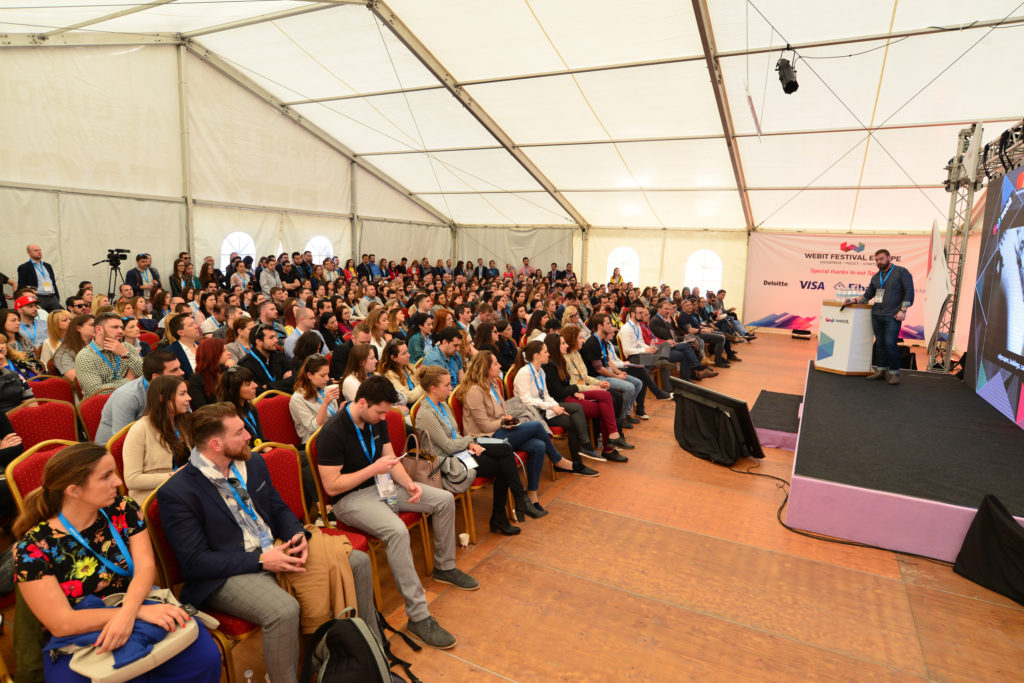 The Chief Creative Officer of DigitasLBi Chris Clarke[/caption]
Back in 2012 when Instagram was bought by Facebook for a $1 billion was the year when Kodak went bust. In its peak Kodak employed 300 000 people around the world and it made revenues of $3-4 billion a year. When Instagram was bought for a billion Instagram had 30 employees and made revenues of $0. So there are some major challenges in terms of value destruction, as well as value creation when it comes to digital disruption.
As someone who describes himself as a cheerful dystopian, he warned that marketers must think about the impact of their works when advising brands about the brightest ways to operate in this space. Because the development of internet did not give control to the consumers - it took it away from them.
Today we are checking our phones regularly even when we should be playing with our children. The reason for this is the addiction we develop, because of the dopamine reward that the usage of different platforms is giving us.Clarke describes the social media and global businesses like Google and Facebook as the best system of population control ever invented.
The Chief Creative Officer of DigitasLBi Chris Clarke[/caption]
Back in 2012 when Instagram was bought by Facebook for a $1 billion was the year when Kodak went bust. In its peak Kodak employed 300 000 people around the world and it made revenues of $3-4 billion a year. When Instagram was bought for a billion Instagram had 30 employees and made revenues of $0. So there are some major challenges in terms of value destruction, as well as value creation when it comes to digital disruption.
As someone who describes himself as a cheerful dystopian, he warned that marketers must think about the impact of their works when advising brands about the brightest ways to operate in this space. Because the development of internet did not give control to the consumers - it took it away from them.
Today we are checking our phones regularly even when we should be playing with our children. The reason for this is the addiction we develop, because of the dopamine reward that the usage of different platforms is giving us.Clarke describes the social media and global businesses like Google and Facebook as the best system of population control ever invented.
“We are experiencing great social changes and they are completely changing the way brands need to communicate. Only 17 years ago the most powerful computer in the world was called the Big Red and was about the size of a room. Six years later the same processing power was available in the Sony PlayStation 3 and now it is available in the smartphones in our pockets”, he said.According to Clarke now it is almost impossible for any person or organization to really know what is happening in the world. The pace of change is very fast that it is almost impossible for governments and legislation to keep up. We have a growth of massive digital businesses that have disrupted whole industries and this comes with a big prize that someone has to pay. When The Cluetrain Manifesto, often regarded as the Bible for digital disruption, was released in 2009 we all took for granted the notion that information wants to be free and the idea of free content online. Now we can see that while the industrial disruption can create great opportunities, the problem is that the disrupted industries have not really been replaced in terms of jobs. We have the challenge that economists describe as “premature deindustrialization”. A developing country, like India for example, is trying hard to get the people out of the fields and put them into factories. But now the factories are operated by machines and apps, so they have to get people out of the fields and put them into educational institutions to teach them about software development, which is much bigger leap. That caused huge challenges and countries are struggling to keep up. [caption id="attachment_5006" align="aligncenter" width="640"]
 The Chief Creative Officer of DigitasLBi Chris Clarke[/caption]
Back in 2012 when Instagram was bought by Facebook for a $1 billion was the year when Kodak went bust. In its peak Kodak employed 300 000 people around the world and it made revenues of $3-4 billion a year. When Instagram was bought for a billion Instagram had 30 employees and made revenues of $0. So there are some major challenges in terms of value destruction, as well as value creation when it comes to digital disruption.
As someone who describes himself as a cheerful dystopian, he warned that marketers must think about the impact of their works when advising brands about the brightest ways to operate in this space. Because the development of internet did not give control to the consumers - it took it away from them.
Today we are checking our phones regularly even when we should be playing with our children. The reason for this is the addiction we develop, because of the dopamine reward that the usage of different platforms is giving us.Clarke describes the social media and global businesses like Google and Facebook as the best system of population control ever invented.
The Chief Creative Officer of DigitasLBi Chris Clarke[/caption]
Back in 2012 when Instagram was bought by Facebook for a $1 billion was the year when Kodak went bust. In its peak Kodak employed 300 000 people around the world and it made revenues of $3-4 billion a year. When Instagram was bought for a billion Instagram had 30 employees and made revenues of $0. So there are some major challenges in terms of value destruction, as well as value creation when it comes to digital disruption.
As someone who describes himself as a cheerful dystopian, he warned that marketers must think about the impact of their works when advising brands about the brightest ways to operate in this space. Because the development of internet did not give control to the consumers - it took it away from them.
Today we are checking our phones regularly even when we should be playing with our children. The reason for this is the addiction we develop, because of the dopamine reward that the usage of different platforms is giving us.Clarke describes the social media and global businesses like Google and Facebook as the best system of population control ever invented.
“People like to talk about the Arab spring as being a wonderful moment of social media giving start to great rebellion. But it didn’t exactly end up well, did it? Because even as Facebook is quite good for helping us organize ourselves, it’s pretty rubbish when we have to come up with alternative to a theocratic state, like Iran for example. People there are not thinking deeply about their issues, they are liking, passing on information, getting that quick dopamine reward and then moving on”, he said.The fact that most of the platforms we consume information from are tailored for us creates filter bubbles that took away from us the idea of what people, who are not like us, are reading or experiencing. This is why for many people it was surprise that Brexit and Trump happened - because these major world shaking events are forming inside someone else’s bubble. It is therefore impossible for a brand to address everybody with one campaign idea globally. Because each filter bubble is unique. Couple of years ago Google’s Executive Chairman Eric Schmidt predicted that it will be very hard for people to watch or consume something that is not in some sense been tailored for them. But despite this negative trends, Clarke is sure that the massive polarization of audiences gives the big brands a chance to stand up and be the driver behind the positive change in the world. The reason is that it is really difficult to mean something to anybody when you are occupying the middle space that is now disappearing. Right after Donald Trump introduced his Muslim ban in the USA, many brands stood up against this, risking to alienate part of their audiences and saying that money are less important than values. This is something that we did not often see in the past and can be an opportunity to have a real impact in the society.
“I genuinely think that there is a fantastic opportunity if we think in the right way of how the internet is configured, if we question it, if we don’t just pretend that the customer is in control, if we don’t just pretend it is all about democracy and laugh. If we recognize some of the darker sides of what we are building we can change it and make it better. And I think that brands have a fantastic role to play in that”, Chris Clarke said.You may watch his full lecture here: If you want to keep up with the latest trend in the world of digital economy and technology, then Webit.Festival is the right place for you. Visit our website and book 2 of our Super Earlybird tickets for Webit.Festival Europe 2018 for just €100. Feel the Webit vibe with some of the best photos from this year’s event! [easingslider id="4954"]
The key to innovation is having an open mind and desire...
The concept of Digital Single Market that covers digital marketing, e-commerce and telecommunication sectors in Europe was officially presented by the European Commission in May 2015 and was pre-announced on the stage of Webit’s CEEDS in April 2015.
The Vice President of the Commission Andrus Ansip explained that the realization of the project could contribute €415 billion per year to the common EU economy and create hundreds of thousands of new jobs.
More than two years after its announcement the Digital Single Market is still looks more like a great idea than а reality. And according to the famous marketing strategist and trendwatcher for Fortune 500 companies Igor Beuker this could be the greatest chance that Europe have, if it wants to catch up with the competition of economic juggernauts like USA and China.
On the stage of Webit.Festival Europe he shared his Math Man view on why intelligence is the ability to adapt to change. This skill is increasingly important in the corporate world, struggling with the process of digital transformation.
During his keynote speech at the Opening ceremony he showed the audience the latest trends in the digital economy and presented his thoughts on the current systems, that were developed for the 20th century.
He explained that Digital Darwinism is the phenomenon in which trends, technologies, consumers and society evolve faster than established brands can adapt. It’s a fate that also threatens governments, institutions, and all other corporate organizations. Today, tomorrow and in the unforeseeable future.
“For almost 25 years I am witnessing that advertising may win quarters, innovation wins decades. I don’t need to know much about technology, I’ve just got an open and limitless mind. I’ve learned that i.e. our financial, political and educational systems were built for the 20th century. It’s about time we seriously upgrade these systems, so we can finally deal with the challenges and opportunities of this 21st century”, said Mr. Beuker.According to Beuker, the traditional corporate world is ruled by “Mad Men”, who keep spending billions of dollars on advertising, backward-looking market research and consultancy services, but fail to innovate. That’s why Mad Men are losing the war from the Math Men. The exponential growing disruptors, who all have a trend-driven, opportunity-seizing innovation culture. He gave examples of Blockbuster, Kodak, Nokia and many other heritage brands, who neglected trends forever, but kept spending billions of dollars on advertising, IBM consultants, old school R&D, and backward-looking market research. Still they lost. The lifespan for Fortune 500s is declining at a pace we’ve never seen before in history. A serious wake-up call. On the other side we see exponential growing companies like Amazon, Tesla, Facebook, Google, Airbnb who are spending billions of dollars per year on trend-driven innovation, not on advertising.
“Amazon spends $13 billion per year on innovation, Walmart and Target each spend $2 billion per year on innovation. Incumbent brands are all addicted to advertising, and miserably fail at innovation. The reason is not technology, because we all have access to the same technologies. The problem with Mad Men is their DNA, mentality and mindset. They’d rather wait 4 more years on relevant business cases. While Math Men are the business case”, Beuker stated.The expert thinks that the main problem with the big brands is their “buy not make mentality” - they are trying to acquire innovators, instead of innovating themselves. Beuker is sure that if the corporations don’t start to effectively innovate, they may no longer exist in 5 to 7 years. The biggest advantage is the fury of the founders of the new digital giants, like Amazon, Tesla and Alibaba. Math Man like Jack Ma has a purpose in life. In 20 years, he wants to grow Alibaba from 500 million to 2 billion customers worldwide, make 10 million retailers profitable and create 100 million news jobs. The Math Men generation entrepreneurs will have a much bigger impact on our global economy than politicians, who have no clue about the digital economy or how to deal with robotization and jobs.
“Digital single Europe is so important because we need startups and unicorns. They will provide new jobs, will create growth, will increase Europe’s GDP and will support our digital markets. We don’t have Facebook, Google, Airbnb and others, but we would like to have them. Politics and the EU need to facilitate businesses much better. Banning Uber is an ignorant way to block innovation”, said Beuker.Soon you will be able to see his full presentation on our YouTube channel. If you want to keep up with the latest trend in the world of digital economy and technology, then Webit.Festival is the right place for you. Visit our website and book 2 of our Super Earlybird tickets for Webit.Festival Europe 2018 for just €100.
Come to Webit.Festival and see the best developers of Brand Strategies
Creating a brand strategy can be among the most difficult tasks in the process of creating a marketing plan. It is an integral aspect of the business development of every company and has the power to increase the voice and consumer awareness of a brand, while giving it an identity and worth.
When it comes to developing your marketing strategy and tactics, all you need is the right balance between the three key components - purpose, consistency and emotional impact.
The first will give your business its functional and intentional goals, the second will help the company to survive, while the third is connecting the customers with your brand and develop the emotion you are going after.
At this year’s Webit.Festival you can listen to some of the top marketers in the world. During the Marketing & Innovation Summit of the event they will share their thoughts on topics, such as Programmatic, Mobile, Video and Native Advertising, Brand Strategies, Metrix & Data, Mobile Marketing, OmniChannel & Personalisation Strategies and Media & Digital Entertainment.
During the Brand Strategies track, recognized experts will give you insight information, that can help you transform your business into the enterprise of tomorrow.
The event will begin with a talk between the Founder of Snowfire Ditte Hammarstrom and the CEO of the company Emil Sundberg. They will discuss the flaws and the nitty-gritty of the design work that happens after you ship a product as a startup. The experts will explore how design can affect the business model and enhance the ability to convert visitors into customers.
Right after them, the Chief Creative Officer of DigitasLBi Chris Clarke will speak about the death of empathy and will explain why global brand consistency doesn’t matter anymore.
Chris will talk about the emergence of filter bubbles and show how this has impacted politics, culture society and by extension, brands. Whether we like it or not, this phenomenon means we no longer understand the world outside our own network, so brands must increasingly play a game of channel authenticity over brand consistency.
The Founding Partner of Ready Set Rocket Aaron Harvey, will explain why the consumers make purchase decisions based on brand values and authenticity, as much as they do convenience and price.
Twice Reply’s Partner and Managing Director Volker Glaeser, will talk about the most efficient ways of creating and testing future products. He will tell us more about the two most important approaches of today’s leading global innovators - Rapid Prototyping and Constant Beta.
The Vice-President for Marketing at TELUS International Europe Gregorie Vigroux will tell us how to use LinkedIn most effectively in our business to business communications. The professional social media now has more than 433 million registered users. Each month it is visited by at least 106 million unique users.
The Senior Director for Group Digital Strategy at DHL - Global Headquarters Cristian Citu will talk about the digital marketing capabilities in a Top 20 B2B brand and how to realize them in the best possible way.
At the very end of the track, the Vice President for Digital Strategy at DAC Group Nasser Sahlool will share his experience in winning the hearts, minds and wallets of digital consumers. The expert is sure that the path to personalization goes through localization of content, campaigns, creative and calls to action.
Here you can see a full list of the confirmed speakers at Webit.Festival, while here you can get all the information you need about the tickets for the event.
